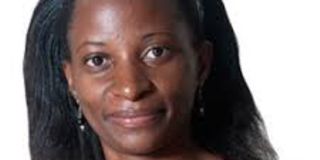In another life, I could have been a national athlete

The day after 19-year-old Jacob Kiplimo won the 5,000m race in Ostrava, Czech Republic, I had an animated conversation with an acquaintance regarding athletics in this country. He had some interesting suggestions on how to motivate athletes and how to improve our chances of success on the track and field at the world stage. He suggested that athletes, even those already employed, say in prisons or police, should be given special pay or allowances over and above their regular earnings.
He went on to propose that the person in charge at the national level should be an athlete, past or present. He even moved that the government should take a keen interest in the wellbeing of its athletes, since they are national assets. Given time and opportunity, he would have gone on and given me enough material for a White Paper, but what little he said gave me pause to think how the ordinary Ugandan roots for our athletes.
It is daunting then to imagine how many able-bodied youth in this country of many talents, could have been in this athletic space, if only we mentored young people better, gave them more and better facilities countrywide and facilitated them to grow and excel. Picture a world in which we dominate the athletics medal table, because we can.
To show how far we haven’t gone in popularising athletics in this country, you only need to get on the road, not in the posh suburbs of Muyenga and Makindye Kizungu, but on the inner city murram roads like mine, to see that mere jogging is still a curiosity. Athletes and those who aspire to be, are considered a special breed, a group with special, magical powers deemed to be out of reach for the majority.
Maybe they think that to be an athlete, you must have been born in a special place, fed on special food and have different and special body parts.
This, of course, is far from the truth, as we know that a variety of people can thrive in this space if allowed to.
Personally, I have stood on the summit in Kapchorwa District and looked out over at the beautiful homes of our athletic heroes and felt immense pride. I promised myself that I would do my part to encourage any youngsters with potential to reach for their athletic dream. It may be too late for me and countless others, but I can stoke the flames for the next generation of runners.
The few things I learnt about long distance running from my friend and coach, a former athlete, including pace and breathing control, have turned me into quite the marvel to watch on village roads.
In my idle moments, as well as during my active ones, I often wonder what could have been, if as a youngster, I had received more encouragement, seen more local athletic sporting heroes and had access to more facilities in my youth.
Some children are obvious talents but then some like me, could be late bloomers or have latent gifts that need awakening. It is my prayer that in spite of the pressure facing land in this country, school fields will be preserved and that sports will continue to occupy a premium space on the role of extracurricular activities. The stories of our post Akii-Bua sporting victories should be curated and told.
I will tell my children of the great Inzikuru, the steeplechase champion and how watching her as she ran and jumped over hurdles and obstacles to the finish line, brought tears to my eyes. I will tell of Birungi, Kamoga, Kiprop, Kipsiro, Nanyondo, Kiprotich, Cheptegei, Nakaayi, Kiplimo and many others to come.


